1. Individuals with bowel or bladder concerns
Urgency
Urinary urgency is when you feel like you suddenly, without warning need to get to the toilet and may or may not be able to hold it. Examples of this may be hearing running water or putting your key in the door when you get home and then needing to rush to the toilet where you didn’t have any urge to go beforehand.
Stress Incontinence
There is also the classic incontinence you hear about when people cough or sneeze and leak urine. Or they may want to jump on the trampoline, do box jumps or skipping so they go to empty their bladder first or avoid the activity altogether to avoid any leakage. This is called stress incontinence, where the stress or pressure that is placed on your bladder overcomes the ability to keep the urine in and results in leaking.
This is common after pregnancy, but can occur at any time in a person’s life, regardless of having children. Urgency and incontinence can also occur fecally. A detailed assessment can help discern why this is happening and what you can do about it.

2. Prolapse
Prolapse is a condition in which 1 or more pelvic organs; the bladder, uterus or rectum, can have increased mobility and move down into the vaginal cavity. This most commonly happens postpartum, but can happen after chronic constipation, heavy weightlifting, lots of jumping or impact or chronic coughing.
Some increased movement may be normal for you, it’s when it’s paired with symptoms that we may be addressing it. You may feel a bulge in the vagina, a heaviness or dragging sensation, low back ache or have difficulties emptying your bowel or bladder.
3. Pain during pregnancy and post partum
Surrounding pregnancy, there are a lot of changes in your body including increased mobility of ligaments and changing body size and shape. This can lend itself to difficulties continuing your usual exercise or even interrupt your day to day activities.
Similarly, there are changes post partum with hormones, tissue healing and postures with feeding and caring for a new baby.
4. Pelvic Pain
Pelvic pain can occur for a variety of reasons and with a variety of activities.
From pain in your pelvis from exercise, to pain with sex or pain with urination. Pelvic pain with these activities is not normal and can be addressed.
5. Rectus Diastasis or abdominal separation
You have your 6 pack abs- rectus abdominis, which will separate during pregnancy to make room for growing bub. Oftentimes postpartum this separation will come back together over the first few months to a year. Sometimes the abs will stay separated to some degree and may cause troubles with lifting or load transfer or decrease confidence due to the aesthetics.
Treatment
All of the above conditions are assessed through detailed subjective and physical exams. From these we will then run through the appropriate treatment options for you. This might be advice and education about ergonomics, toileting habits or exercises.
The pelvic floor muscles are just like any muscle. Depending on what is going on we may need to work on strength, endurance, awareness, relaxation or mobility of the tissue. A pelvic floor contraction, or kegals as they are sometimes called can have an important role in helping support a prolapse/ prevent further prolapse and aiding with urinary incontinence. Sometimes, release and relaxation exercises are important to help with pelvic pain or difficulty activating the pelvic floor. Other options may be fitting for pessaries, devices used to support a prolapse internally or providing a safe return to exercise programs.
A women’s health physiotherapist can assess your pelvic floor. Combining your symptoms, your goals and what is found on an internal exam, they can provide you with options which may help you. PEAK is proud to provide women’s health appointments with specially trained physiotherapists. We look forward to helping you achieve your goals!
Kirsten Seth
Women’s Health Physiotherapist
PEAK
1. Individuals with bowel or bladder concerns
Urgency
Urinary urgency is when you feel like you suddenly, without warning need to get to the toilet and may or may not be able to hold it. Examples of this may be hearing running water or putting your key in the door when you get home and then needing to rush to the toilet where you didn’t have any urge to go beforehand.
Stress Incontinence
There is also the classic incontinence you hear about when people cough or sneeze and leak urine. Or they may want to jump on the trampoline, do box jumps or skipping so they go to empty their bladder first or avoid the activity altogether to avoid any leakage. This is called stress incontinence, where the stress or pressure that is placed on your bladder overcomes the ability to keep the urine in and results in leaking.
This is common after pregnancy, but can occur at any time in a person’s life, regardless of having children. Urgency and incontinence can also occur fecally. A detailed assessment can help discern why this is happening and what you can do about it.

2. Prolapse
Prolapse is a condition in which 1 or more pelvic organs; the bladder, uterus or rectum, can have increased mobility and move down into the vaginal cavity. This most commonly happens postpartum, but can happen after chronic constipation, heavy weightlifting, lots of jumping or impact or chronic coughing.
Some increased movement may be normal for you, it’s when it’s paired with symptoms that we may be addressing it. You may feel a bulge in the vagina, a heaviness or dragging sensation, low back ache or have difficulties emptying your bowel or bladder.
3. Pain during pregnancy and post partum
Surrounding pregnancy, there are a lot of changes in your body including increased mobility of ligaments and changing body size and shape. This can lend itself to difficulties continuing your usual exercise or even interrupt your day to day activities.
Similarly, there are changes post partum with hormones, tissue healing and postures with feeding and caring for a new baby.
4. Pelvic Pain
Pelvic pain can occur for a variety of reasons and with a variety of activities.
From pain in your pelvis from exercise, to pain with sex or pain with urination. Pelvic pain with these activities is not normal and can be addressed.
5. Rectus Diastasis or abdominal separation
You have your 6 pack abs- rectus abdominis, which will separate during pregnancy to make room for growing bub. Oftentimes postpartum this separation will come back together over the first few months to a year. Sometimes the abs will stay separated to some degree and may cause troubles with lifting or load transfer or decrease confidence due to the aesthetics.
Treatment
All of the above conditions are assessed through detailed subjective and physical exams. From these we will then run through the appropriate treatment options for you. This might be advice and education about ergonomics, toileting habits or exercises.
The pelvic floor muscles are just like any muscle. Depending on what is going on we may need to work on strength, endurance, awareness, relaxation or mobility of the tissue. A pelvic floor contraction, or kegals as they are sometimes called can have an important role in helping support a prolapse/ prevent further prolapse and aiding with urinary incontinence. Sometimes, release and relaxation exercises are important to help with pelvic pain or difficulty activating the pelvic floor. Other options may be fitting for pessaries, devices used to support a prolapse internally or providing a safe return to exercise programs.
A women’s health physiotherapist can assess your pelvic floor. Combining your symptoms, your goals and what is found on an internal exam, they can provide you with options which may help you. PEAK is proud to provide women’s health appointments with specially trained physiotherapists. We look forward to helping you achieve your goals!
Kirsten Seth
Women’s Health Physiotherapist
PEAK
Let's get started — How can we help?
Physiotherapy
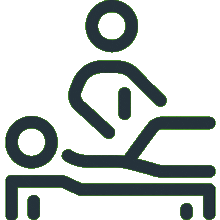
Chiropractic
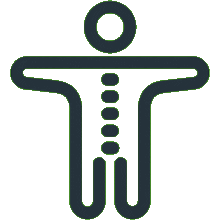
Podiatry
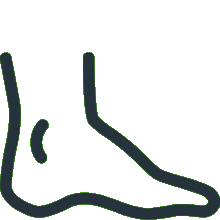
Massage Therapy
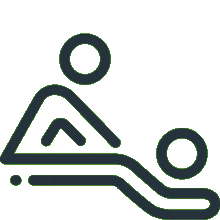
Women's Health Physiotherapy

Running Program Tailored To Your Goals

Joint Mobilisation
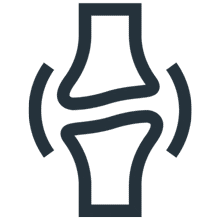
Active Release Technique
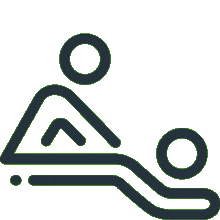
Exercise Prescription
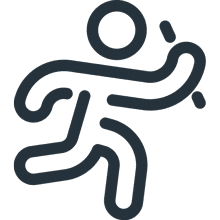
Real Time Ultrasound Imaging

Spinal Manipulation
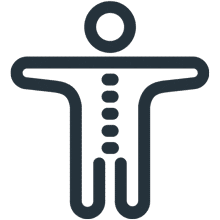
Functional Movement Screen
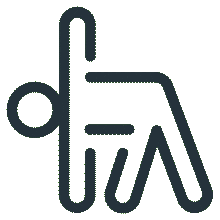
Knee Pain Treatment

Hamstring Strain Treatment
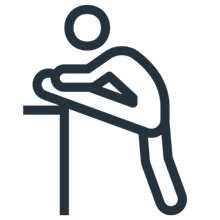
Hip Pain Treatment

Upper, Middle & Lower Back Pain

Neck Pain Treatment

Shoulder Pain & Rotator Cuff Tear

Can't find what you're after?
View all Services
Make an appointment
Or email the PEAK team at info@peakssc.com.au
Hawthorne
- Phone: (07) 3399 3318
- Fax: (07) 3319 6577
Address
5/171 Riding Road,Hawthorne, QLD, 4171 Get Directions
Opening Hours -
6 days per week
- Monday - Friday: 7:00 am - 8:00 pm
- Saturday: 7:00 am - 1:00 pm
To make a booking outside of business hours, please use our form by clicking here.
New Farm
- Phone: (07) 3399 4668
- Fax: (07) 3319 6577
Address
1/15 Lamington Street,New Farm, QLD, 4005 Get Directions
Opening Hours -
6 days per week
- Monday: 7:00 am - 8:00 pm
- Tuesday: 7:00 am - 8:00 pm
- Wednesday: 9:00 am - 8:00 pm
- Thursday: 10:00 am - 8:00 pm
- Friday: 7:00 am - 3:00 pm
- Saturday: 7:00 am - 3:00 pm
To make a booking outside of business hours, please use our form by clicking here.

